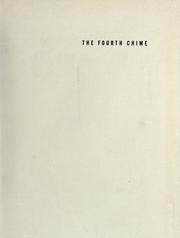"We have just seen the Graf Spee explode five miles from the coast. The ship has been scuttled!" It was the voice of NBC's James Bowen from Montevideo. A few minutes before this startling announcement, Bowen, connected with the NBC Newsroom in New York by short-wave line, had shouted, "Give me the air! Quick! The ship has exploded!"
175 stations of the Red and Blue networks were immediately cleared and Bowen's description of the ship's sinking was heard by millions of radio listeners throughout the United States.
The Graf Spee was scuttled on Sunday, December 17, 1939. Several days before, NBC News and Special Events, aware of the world-wide interest in the destiny of this German pocket battleship, had laid plans to cover the story. An observer had been stationed in a lighthouse "borrowed" for the occasion; four Uruguayan radio men were assigned to positions along the shore line. These men, armed with powerful binoculars, were connected by telephone with Bowen, who had taken up his position on a handy scaffolding.
Bowen, also armed with powerful binoculars, did some of the fastest thinking in the history of radio "scoops," for the Uruguayans could not speak English. As Bowen relayed his own eye-witness account to America, he supplemented it with rapid translations of the Uruguayans' observations up the shore.
Bowen covered the story in eleven broadcasts to the United States from the time the Graf Spee limped into port for repairs to the final throwing of the electric switch by Captain Hans Lanzdorf which blew up the battleship.
NBC News and Special Events also scored by flashing the story to Europe before routine cable communications got through.
Buy this book

A corporate history of the development of the NBC radio network's news division, with the accent on the events of and leading up to the Second World War up through D-Day. Includes write-ups and photographs of NBC's on-air news personalities from the war era, as well as many news photos of the 1930s and 1940s. Titled for the over-the-air signal used to alert NBC personnel to stand-by for events of major importance.
Publish Date
1944
Publisher
National broadcasting company
Buy this book

Showing 2 featured editions. View all 2 editions?
| Edition | Availability |
|---|---|
| 1 |
aaaa
|
| 2 |
zzzz
Libraries near you:
WorldCat
|
Book Details
Published in
[New York]
Edition Notes
The Physical Object
ID Numbers
Excerpts
Page 74-75,
added by EricW.
Example of the general tone of the text.
Community Reviews (0)
Feedback?| August 13, 2020 | Edited by MARC Bot | remove fake subjects |
| June 1, 2019 | Edited by MARC Bot | import existing book |
| November 10, 2010 | Edited by EricW | Excerpt didn't save, reposting |
| November 10, 2010 | Edited by EricW | corrected date tags |
| December 10, 2009 | Created by WorkBot | add works page |









